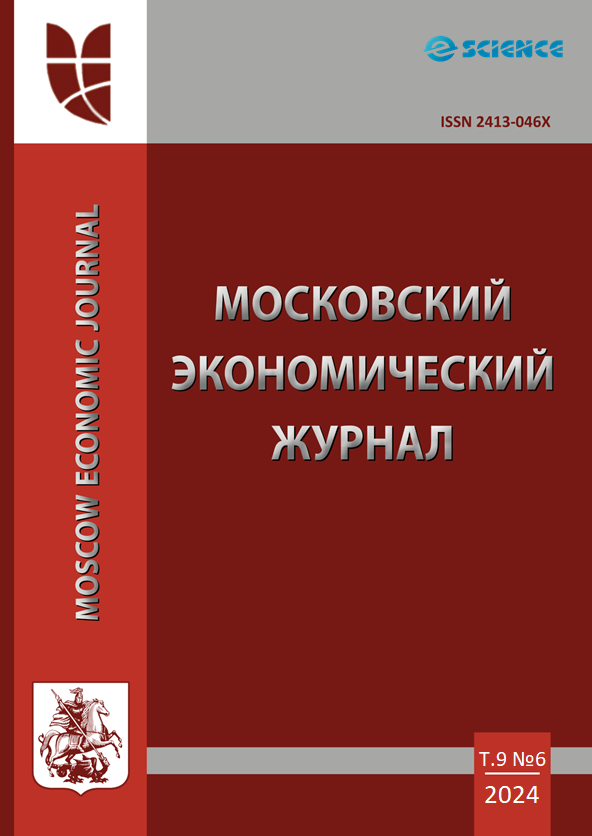UDC 33
This article discusses the use of interactive teaching methods to develop financial skills in students. Special attention is paid to the integration of economic games and simulations into the educational process. The purpose of the study is to evaluate the effectiveness of such methods to improve financial literacy and develop practical financial management skills among students. The article provides an overview of existing methods and approaches, analyzes their impact on the learning process and student engagement. The results of the introduction of these methods into the curricula of various educational institutions are analyzed. The study demonstrates that the use of interactive methods such as games and simulations contributes to a deeper understanding of financial concepts and principles. Students not only gain theoretical knowledge, but also develop practical skills such as budget planning, investing and risk management. This, in turn, increases their readiness for real financial challenges. The conclusions emphasize the importance of an innovative approach to financial education and the need for further research in this area to improve the quality of education and adapt to modern labor market requirements.
interactive teaching methods, financial skills, economic games, simulations, financial literacy, educational technologies, practical skills, financial management, innovations in education
1. Reutov V.E i dr. Biznes-simulyaciya kak interaktivnyy metod podgotovki ekonomistov // Nauchnyy vestnik: finansy, banki, investicii. 2021. №1 (54). S. 123-129.
2. Manyukova, N.V. Organizaciya interaktivnogo obucheniya s pomosch'yu MS EXCEL v kachestve instrumenta komp'yuternoy simulyacii // Sovremennye issledovaniya social'nyh problem. 2017. T. 8, № 4. S. 101-112.
3. Aksenov A.V. Obzor otechestvennyh biznes-simulyatorov v processe obucheniya specialistov ekonomicheskogo profilya // Teoriya. Praktika. Innovacii. 2016. № 12 (12). S. 6-13.
4. Pesha, A.V. Razvitie nadprofessional'nyh kompetenciy studentov v novoy onlayn-real'nosti 2020 goda // Professional'noe obrazovanie i rynok truda. 2020. № 2. S. 85-86.
5. Abylkasymova A.E., Shishov S.E., Kalney V.A., Ryahimova E.G. Vliyanie vysokotehnologichnogo obschestva na razvitie sovremennoy sistemy obrazovaniya. Zhurnal teorii i praktiki vysshego obrazovaniya. 2022. T. 22. № 5. S. 201-206.
6. Klarin M.V. Innovacionnye modeli obucheniya. Issledovanie mirovogo opyta -M.: Luch, 2016. 172 s.
7. Mutalieva A.Sh., Ahtanova S.K. Pedagogika XXI veka: innovacionnye metody obucheniya // Universum: psihologiya i obrazovanie : elektron. nauchn. zhurn. 2020. №3. S. 53-58.
8. Orlova O.V., Titova V.N. Geymifikaciya kak sposob organizacii obucheniya // Vestnik Tomskogo gosudarstvennogo pedagogicheskogo universiteta. 2015. № 9. S. 60-64.
9. Titova S.V., AleksandrovaK.V. Geymifikaciya v obuchenii inostrannym yazykam: psihologo-didakticheskiy potencial // Pedagogika i psihologiya obrazovaniya. 2019. № 1. S. 135-153.
10. Taranenko, I.A. Pedagogicheskie usloviya effektivnogo funkcionirovaniya sistemy podgotovki buduschih ekonomistov k cennostno-orientirovannoy delovoy kommunikacii //Evrop. zhurnal soc. nauk. 2015. № 11. S. 251-257.
11. Cherkasova, E.K. Sovremennye pedagogicheskie tehnologii: interaktivnye tehnologii na urokah angliyskogo yazyka kak motivaciya uchebnoy deyatel'nosti //Vestnik nauki i obrazovaniya. 2019. № 19-1 (73). S. 88-90.
12. Asanova, F.B. Ispol'zovanie interaktivnyh tehnologiy s cel'yu razvitiya kreativnogo myshleniya studentov na zanyatiyah po tehnologii // Problemy sovrem. ped. obrazovaniya. 2019. № 65-1. S. 20-23.











